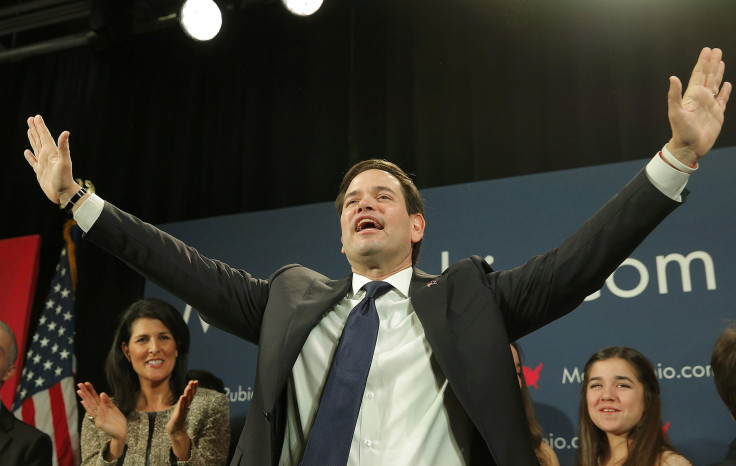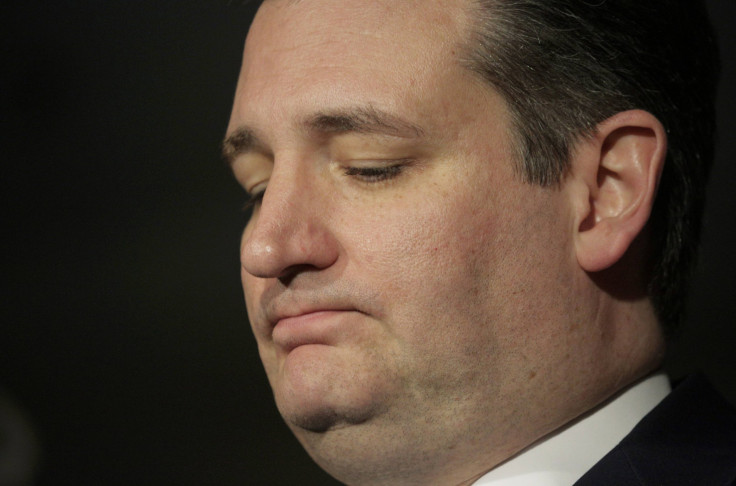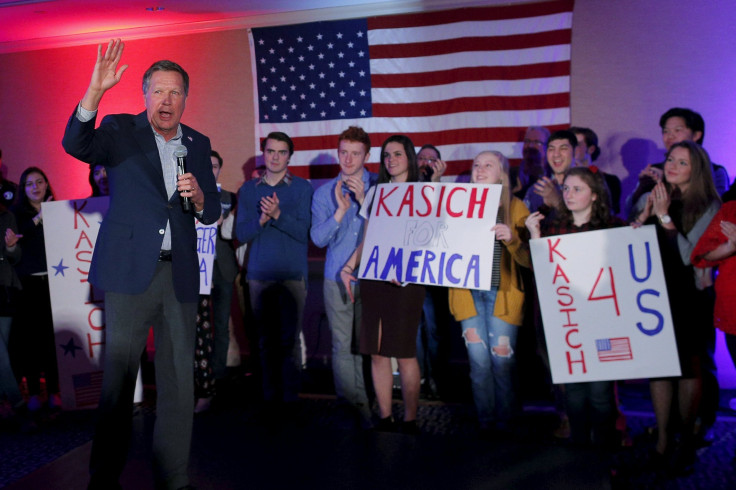Election 2016 Update: GOP Hopefuls Marco Rubio, Ted Cruz Say Winnowing Of Field Will Benefit Them

U.S. Sens. Marco Rubio of Florida and Ted Cruz of Texas, were the second- and third-place finishers, respectively, in Saturday’s South Carolina Republican primary Sunday, before predicting the winnowing of the GOP field will prove front-runner Donald Trump’s undoing.
Trump won a decisive victory in the Saturday balloting, garnering 32.5 percent of the vote and capturing all of the state’s 44 Republican National Convention delegates. The win was the second No. 1 finish for the real estate mogul. He won the New Hampshire primary with 35.3 percent of the vote, capturing 10 of that state’s 23 delegates, and finished second in Iowa behind Cruz, who had 24.3 percent support, capturing seven delegates.
No Republican candidate who has won both New Hampshire and South Carolina ever has been denied the Republican nomination. A candidate will need 1,144 delegates to secure the nomination. Cruz has 11 delegates, and Rubio has 10.
Rubio, on CNN’s “State of the Union,” said the dynamic “is beginning to shift” with the suspension of former Florida Gov. Jeb Bush’s campaign and the continued single-digit showings by remaining candidates Dr. Ben Carson and Ohio Gov. John Kasich.

“Last night was truly the beginning of the true Republican primary,” Rubio said, adding he’s the candidate that the “Democrats fear most.”
“Marco should have won,” Cruz said on “State of the Union.” “When Marco had the leading players behind him, he couldn’t come close to Donald Trump.”
Rubio turned aside rumors he is about to gain the endorsement of 2012 GOP presidential candidate Mitt Romney. “That report is false,” he said, adding, “We’d love to have it.”
On NBC’s “Meet the Press,” Cruz refused to concede repeated attacks on him by Trump and Cruz calling him a liar had an impact on the results. He maintained every time he points to their records and words, they respond by calling him a liar.

In his appearances Sunday morning, Cruz refused to address the issue of why evangelicals, whom he considers his base, have not provided more support. Exit polls indicated 73 percent of Saturday’s voters identified themselves as evangelicals, but Cruz captured just 22.3 percent of the vote.
Trump said he did not view the South Carolina results as a referendum on the Bush legacy, saying it just wasn’t Jeb Bush’s time to be president.
“Four years ago, I think he would have won,” Trump said.
For his part, Trump does not see his nomination as inevitable. “Certainly nobody’s unstoppable,” he said on “State of the Union,” adding that though he was an insider who contributed to myriad candidates over the years, he became an outsider once he announced his candidacy.
“I’m leading, no question, but we’ve got a long way to go,” he said on CBS’s “Face the Nation.”
Trump predicted there will be no need for a brokered convention. “I think I’m doing better than that,” he said.

Kasich, who won just 7.6 percent of the vote Saturday and finished behind Bush, told “Face the Nation” that voters are just beginning to hear about him. “We never expected to finish near the top in South Carolina. Frankly I think we finished better than expected,” Kasich said.
Kasich said he expects to do well in Vermont, Massachusetts, Virginia, Mississippi and the Midwest, citing the way the states award delegates proportionally. “We just have to hang in there and build momentum,” he said, noting he did not really campaign in South Carolina. “We’re the engine that can.”
© Copyright IBTimes 2024. All rights reserved.






















